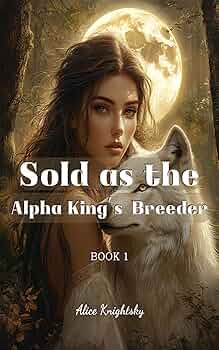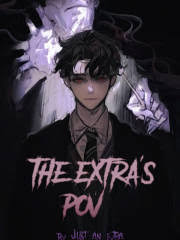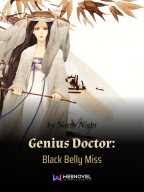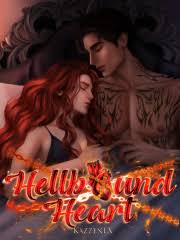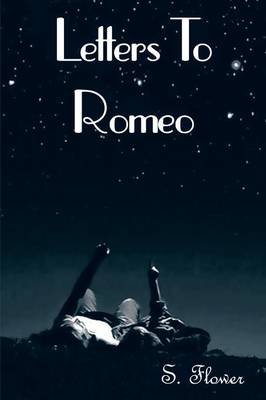The Story in 3 Sentences
Rosalie, a mixed-blood werewolf forcibly sold into the role of breeder, uses her sharp observational skills and strategic mind to navigate the treacherous politics of the werewolf hierarchy while challenging the Alpha King’s dominance with quiet defiance rather than open rebellion.
As rival packs and internal betrayals threaten the pack’s survival, she uncovers her dormant Alpha lineage, a secret that could rewrite the rules of werewolf society and shatter the centuries-old traditions that have kept her people divided.
In the final battle, she doesn’t just survive—she dismantles the oppressive breeder system, becoming a queen who rules alongside the Alpha King while protecting the next generation’s right to choose their own path, with their hybrid children playing with human toys as a quiet rebellion against pureblood traditions.
Why It Stands Out
1. The Breeder as Strategist
Unlike typical romance tropes where the breeder is passive, Rosalie weaponizes her perceived weakness—her human bloodline—to outmaneuver the Alpha King’s court, turning survival into political strategy through meticulous observation and calculated risks. She memorizes patrol routes, deciphers dominance patterns, and even learns combat techniques by watching guards, using her outsider perspective to exploit loopholes in the system.
2. Power Through Vulnerability
The Alpha King’s dominance isn’t portrayed as heroic; his vulnerability—kneeling to wash Rosalie’s feet, sacrificing his throne to protect her—redefines alpha masculinity, making his strength lie in emotional growth rather than brute force. His journey from a tyrant to a leader who confronts his past atrocities and learns to lead through empathy rather than fear creates a powerful narrative about redemption and growth.
3. Hybrid Legacy as Rebellion
The ending doesn’t settle for a happy-ever-after; the hybrid children playing with human toys symbolize a quiet revolution against pureblood traditions, showing that true power comes from embracing difference rather than enforcing conformity. This subtle rebellion challenges the entire werewolf hierarchy’s obsession with purity, suggesting that the future belongs to those who reject outdated traditions.
Characters That Leave a Mark
There’s Alaric – the Alpha King, once feared for his iron rule, whose curse was cast by the Moon Goddess after he slaughtered a pacifist pack under the lunar eclipse, forcing him to bear the pain of every wronged soul in his territory until Luna, his fated mate, became the only one who could ease his suffering. His journey from a tyrant to a leader who confronts his past atrocities creates a powerful narrative about redemption and growth.
You’ll meet Luna, who carries the reincarnated soul of Alaric’s lost love — the very woman whose death triggered the curse — and whose quiet presence doesn’t heal him, but makes him face the weight of centuries of violence he refused to acknowledge. She’s not just a love interest but a mirror reflecting his deepest flaws, forcing him to confront the human cost of his actions.
And the Moon Goddess? They’re the one who didn’t punish Alaric with chains or fire, but with empathy — binding his curse to his capacity for compassion, so that every time he helps someone selflessly, a phantom wound fades, turning his reign into a slow, agonizing redemption.
The Flaws Fans Debate
Some readers find the Alpha King’s possessive behavior in early chapters romanticizes toxic control, making his redemption arc feel unearned. Critics argue that his initial actions—such as treating Rosalie as property and using dominance to control her—cross into unhealthy territory that isn’t adequately addressed before his transformation.
Others criticize the middle sections where political intrigue overshadows character development, slowing the emotional momentum. The detailed pack politics, while rich, sometimes drown out the personal growth of Rosalie and Alaric, creating pacing issues that frustrate readers seeking more intimate character moments.
A few note that the breeder system’s abolition happens too quickly, leaving unresolved tensions that would realistically take generations to change. The sudden shift from centuries of tradition to equality feels rushed, with little exploration of how such a fundamental change would affect the entire werewolf society beyond the main characters.
Must-Experience Arcs
Ch. 1-50: The Auction Block – Rosalie’s first days as a breeder, where she memorizes patrol routes and learns combat techniques by observing guards, laying the groundwork for her strategic mind. This arc establishes her as an observer who uses her outsider perspective to navigate the dangerous world she’s been forced into.
Ch. 300-400: The Blood Moon Betrayal – The Alpha King’s brother leaks her pregnancy to enemy packs, triggering a siege where Rosalie reveals her dormant Alpha lineage mid-battle. This pivotal moment transforms her from a pawn to a player in the pack’s power struggle, with the battle scenes showcasing her tactical brilliance and the Alpha King’s vulnerability.
Ch. 1200-1300: The Throne of Equals – The final political maneuver where Rosalie demands voting rights on pack decisions, forcing the Alpha King to dismantle the breeder system and share power. This arc culminates in the hybrid children playing with human toys—a quiet rebellion against pureblood traditions that symbolizes the true end of the old order.
Killer Quotes
“In this world, there is never right or wrong. Only strength and weakness matters here. There are some things that we would never be able to control.”
“The curse isn’t a punishment — it’s a mirror. Every wound you see on me… is someone else’s pain you refused to feel.”
“When you kneel to wash my feet, you aren’t apologizing. You’re finally seeing me as a person — not a vessel.”
Cultural Impact
Fan forums debate the Alpha King’s redemption arc, with some calling it toxic while others praise its nuanced portrayal of power dynamics. Discussions frequently reference his initial possessive behavior versus his later vulnerability, with many comparing it to other alpha romance tropes.
The hybrid children’s rebellion against pureblood traditions has inspired real-world discussions about mixed-race identity in werewolf romance communities. Readers connect the symbolism of hybrid children playing with human toys to broader conversations about acceptance and breaking free from rigid traditions.
The phrase “The Auction Block” has become a meme for situations where people feel reduced to commodities, shared across social media platforms. It’s used in contexts ranging from workplace exploitation to societal pressures, showing the novel’s cultural resonance beyond the fantasy genre.
Final Verdict
Start Here If You Want:
A werewolf romance that redefines the genre by centering on a protagonist who turns victimhood into strategy, using observation and intellect rather than brute force to navigate a brutal hierarchy.
A story where love is earned through mutual growth rather than instant attraction, with the Alpha King’s vulnerability as key to his character and the relationship’s authenticity.
An ending that prioritizes systemic change over personal victory, making the romance a vehicle for social commentary about breaking free from oppressive traditions.
Study If You Love:
Complex power dynamics where emotional growth outweighs physical strength, exploring how true leadership comes from empathy rather than dominance.
Narratives that explore how systems of oppression can be dismantled from within, with the hybrid children symbolizing a quiet revolution against pureblood traditions.
Characters who challenge traditional gender roles in fantasy settings, with Rosalie’s intelligence and strategic mind defying the passive breeder trope.
Avoid If You Prefer:
Instant romance with minimal character development, as this novel focuses on slow-burn emotional growth and mutual respect.
Clear-cut villains and simplistic moral choices, as the story thrives on moral gray areas and nuanced character motivations.
Happy endings where the status quo remains unchallenged, as the novel’s power lies in its willingness to question and dismantle oppressive systems.
